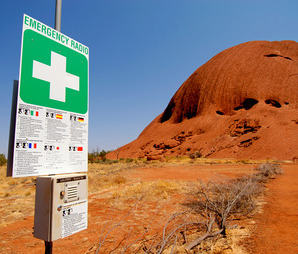Remote nursing suffers lack of safety
 Safety concerns are keeping nurses away from remote work.
Safety concerns are keeping nurses away from remote work.
The National Rural Health Conference in Cairns has heard that personal safety fears are a major challenge to recruiting and retaining remote area nurses and midwives.
The issue was raised again after the death of nurse Gayle Woodford in remote South Australia, who was abducted and murdered during a late night call-out in March last year.
The CEO of CRANAPlus - a peak body for remote and rural health workers - says nurses to always be accompanied during call-outs.
“All people who work in remote Australia were traumatised by that but it's certainly shone a light onto some of the things that we were just prepared to put up with,” CEO Christopher Cliffe said.
“We certainly don't expect policemen or ambulance or fire brigade people to respond as an independent person let alone when you're in a remote community with limited infrastructure, it's just a bit crazy.”
CRANAPlus is drafting a set of national guidelines for remote health workforce safety and security to be published next month.
The Northern Territory recently made it mandatory for nurses to have backup during call-outs.
“All nurses need to go out with somebody and that somebody should be a trusted community member,” says Heather Keighley, the acting chief nursing and midwifery officer for the Northern Territory.
“That person should be employed and paid by the health service and that person should also be given training according to the requirements of the role.
“We're looking a lot at pathways to employment for Aboriginal people from communities where the services are."
Ms Keighley said the safety issues need to be addressed.
“After the unfortunate passing of Gayle Woodford, people became reluctant to go into communities where there wasn't a second responder policy so it was more difficult to recruit for those positions,” she said.
“People are much happier to take those placements in the Territory now where we've got that policy.”
Mr Cliffe said the Northern Territory was aiming to facilitate better relationships with the communities they work in.
“The citizens of a community are your greatest protection, and that's no different in a remote community,” he said.
“These are not inherently dangerous places, there's some dysfunction, challenges and poverty that as a nation we need to address but to say that they're fundamentally unsafe is rubbish.”







 Print
Print